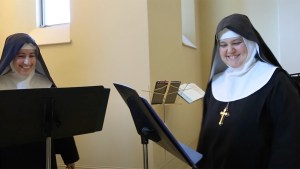A two-week gathering of over 200 abbots, priors, and superiors from the worldwide Benedictine Confederation has led to the election of a new leader of the Order. The Congress of Abbots has elected German Abbot Jeremias Schröder as Abbot Primate of the Benedictine Confederation, who will lead some 7,500 Benedictine monks and 13,000 Benedictine nuns worldwide.
According to the website of the Order of St. Benedict (OSB), the meeting, a quadrennial congress, began on September 6 at Sant’Anselmo all’Aventino, a Benedictine complex in Rome. There, representatives from Benedictine congregations and monasteries from around the world gathered to bid farewell to the outgoing Abbot Primate Gregory Polan, who had served in the position since 2016.
Over the following eight days, the Benedictine representatives took part in keynote addresses, 33 workshops, as well as numerous presentations and discussions to prepare them for the vote on September 14. Before the day was over, Abbot Jeremias Schröder, 60, had been elected to lead the Benedictines.
Abbot Schröder, a Benedictine for 40 years, has studied philosophy, theology and history at the Pontifical Athenaeum of Sant’Anselmo, as well as at St. Benet’s Hall in Oxford. His time spent as a Benedictine visitator has sent him to more than 60 monasteries of the Benedictine order, as well as others.
Shortly after his election, Abbot Schröder explained to Vatican News that the conference was attended by several abbots who came from countries at war, like Ukraine and the Holy Land. He described the world as “on fire right now,” and considered ways that the Benedictines can work to spread the peaceful motto of their Order:
“Next week, during this Congress we abbots will try to reflect together on how we can respond to the motto of our order, which is ‘Pax,’ peace. We will reflect on how we can truly contribute to peace through the work of our communities, through witness, through building bridges between cultures. East and West are separating. The Benedictines have the ancient mission to be in relationship with the Eastern Churches. There is something where we can really make a contribution and we will work on this.”



